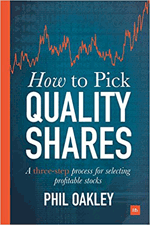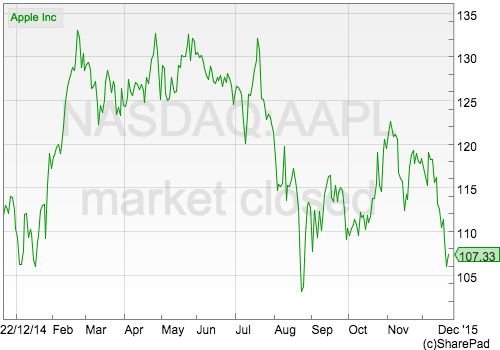What I want to see in 2016: More dividends and less share buybacks
I don't like share buybacks.
To me they are one of the most abused practices in modern finance - an act that too often makes company managers and stockbrokers richer whilst making shareholders worse off (to read more about how share buybacks work click here).
As a private investor looking to build up a nest egg for the future I know that there are only two ways I can make money from owning shares:
- From a rising share price.
- From dividends received.
Nothing else matters. Yet the obsession with share buybacks amongst companies continues. This is mainly because management bonuses are heavily linked to growth in earnings per share (EPS). The easiest way to grow EPS when interest rates are low is to borrow money or use a cash pile to shrink the number of shares in issue.
Sadly for many shareholders, they never see any benefits from these buybacks. Some company managers describe them as a return of cash to shareholders. It is not.
You only win from a share buyback if the share price goes up. If it doesn't then it's hard to see a share buyback as anything but a waste of money. This is often the case because companies pay too rich a price for their own shares.
The great thing about dividends is that they are a tangible cash return on your ownership of a share. Once they have been paid to you they cannot be taken away. This is why I like dividends.
Phil Oakley's debut book - out now!

Phil shares his investment approach in his new book How to Pick Quality Shares. If you've enjoyed his weekly articles, newsletters and Step-by-Step Guide to Stock Analysis, this book is for you.
Share this article with your friends and colleagues:
A closer look at some real world share buybacks
Using SharePad I have had a look at how successful or otherwise some of the most recent share buybacks have been.
I've asked SharePad to create a list of shares looking at the amount of money spent by companies on buybacks on a trailing twelve month (TTM) basis as a percentage of their average market capitalisation over the last year (this gives a negative number because share buybacks are a cash outflow in SharePad data).
Then I have looked at how well the shareholders of these companies have fared during the last year by adding a column on total returns and the return from just dividends. These are shown in the table below.
| Name | Share buyback % of 1y avg Market Cap | %TR 1y | Tot divs %chg 1y | TTM Share buyback |
|---|---|---|---|---|
| Vedanta Resources PLC | -78.10% | -49.4 | 4.48 | -553.1 |
| Premier Oil PLC | -20.40% | -73.2 | -44.3 | |
| Raven Russia Ltd | -15.20% | -16.6 | -42 | |
| Ophir Energy PLC | -10.50% | -35.7 | -64.1 | |
| Rolls-Royce Group PLC | -8.74% | -33.1 | 1.61 | -915 |
| Intermediate Capital Group PLC | -8.02% | 33.2 | 20.1 | -151.5 |
| Macau Property Opportunities Fund Ltd | -7.86% | -33.2 | -9.5 | |
| QinetiQ Group PLC | -7.09% | 43.6 | 3.82 | -111.7 |
| EnQuest PLC | -6.29% | -52.9 | -9.2 | |
| International Personal Finance PLC | -5.38% | -34.6 | 2.69 | -34.8 |
| Glencore PLC | -5.34% | -67.8 | 3.88 | -638.7 |
| Paragon Group of Companies (The) PLC | -5.34% | -7.61 | 4.14 | -56.9 |
| Meggitt PLC | -5.33% | -26.8 | 2.74 | -149.8 |
| Dignity PLC | -5.23% | 32 | 1.06 | -64.4 |
| Investec PLC | -4.27% | -7.55 | 3.9 | -122.6 |
| Vp PLC | -3.98% | 22.7 | 2.68 | -12.3 |
| Helical Bar PLC | -3.87% | 26.6 | 2.01 | -21.1 |
| Inchcape PLC | -3.41% | 9.21 | 2.9 | -112.3 |
| McBride PLC | -3.12% | 93.3 | -8.7 | |
| Kingfisher PLC | -3.10% | 2.02 | 3.04 | -232 |
The table shows the twenty biggest share buybacks as a percentage of market capitalisation in the FTSE All Share index.
As you can see, it makes for pretty grim reading. Some of the biggest proportional share buybacks have coincided with some very poor total returns for shareholders.
Shareholders in Vedanta Resources and Premier Oil have experienced a lot of pain with total returns of minus 49.4% and minus 73.2% respectively. Rolls-Royce has spent nearly £1bn on buybacks but its shareholders have really suffered. These buybacks look like they have been a huge waste of money.
Intermediate Capital Group looks as if its buyback may have worked out well so far. It has also paid out a very chunky special dividend as well. Other notable successes are QinetiQ and Dignity.
Yet only eight of the twenty companies above have seen their shares deliver positive total returns. The returns would have been better if the money had been spent on dividends rather than buybacks.
Worse than that, some of the mining and oil companies on the list are now seeing their finances come under a lot pressure as their profits have been tumbling. The money that they have blown on buybacks could have been very handy in easing some of their troubles.
Has Apple wasted $35 billion?

In America, the obsession with share buybacks is even bigger than it is here.
Looking at its accounts in SharePad I can see that Apple has spent over $35bn on share buybacks - just under 6% of its average market capitalisation - but its shareholders have not made any money this year. They would have if they'd been paid a special dividend instead.
Has this $35bn been a waste of money? Time will tell. Many commentators and prominent investors such as Carl Icahn think that Apple shares are very cheap right now. If they are right and Apple shares are a lot higher in few years' time than they are now then the money will have been well spent.
I'd rather have the cash now.
What can investors do about buybacks?
Sadly, very little it would seem. You always have the choice not to invest or sell your shares.
Not all share buybacks are bad. You can check if they are or not by using the share buyback tool in SharePad. You can find it under the green Investor tools tab in the far right of the Main toolbar (on smaller screens, Investor tools is found by first pressing the green More button).
Here's to good investing and more dividends in 2016.
If you have found this article of interest, please feel free to share it with your friends and colleagues:
We welcome suggestions for future articles - please email me at analysis@sharescope.co.uk. You can also follow me on Twitter @PhilJOakley. If you'd like to know when a new article or chapter for the Step-by-Step Guide is published, send us your email address using the form at the top of the page. You don't need to be a subscriber.
This article is for educational purposes only. It is not a recommendation to buy or sell shares or other investments. Do your own research before buying or selling any investment or seek professional financial advice.